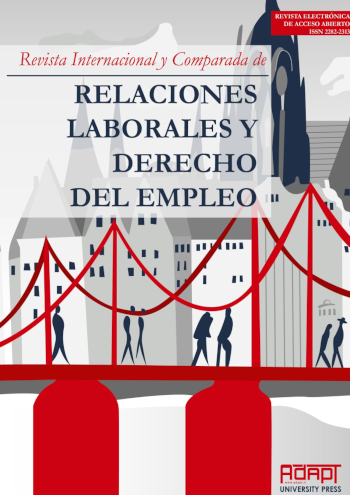Abstract
Los modelos de trabajo híbrido no son novedosos en las empresas de los diferentes países de la Unión Europea. De hecho, son diversas las empresas que lo han venido utilizando desde hace tiempo. Sin embargo, la situación derivada de la pandemia de Covid-19 ha ocasionado que muchas empresas hayan tenido que adaptarse a la nueva situación sanitaria en tiempo récord mediante la implantación de diferentes modalidades de este trabajo híbrido. Así, según una encuesta realizada por Eurofound, casi la mitad de los asalariados ha estado trabajando desde casa durante este período, de los cuales más de 1/3 ha prestado servicios desde casa de manera exclusiva. De esta manera, la mayoría de estos nuevos mecanismos, que posiblemente se conviertan en estructurales, no se desarrollan después de un proceso de reflexión y de aceptación entre los sujetos presentes en la relación laboral, sino son fruto de la propia situación que ha obligado a implementarlos de manera repentina. Ahora bien, a la hora de definir el futuro de este trabajo híbrido es fundamental el papel que ha de jugar la negociación colectiva para regular las condiciones de trabajo teniendo en cuenta, de manera especial, la protección de datos y los derechos digitales.
Hybrid work models are not new in companies in the different Countries of the European Union. In fact, there are various companies that have been using it for a long time. However, the situation derived from Covid-19 pandemic has meant that many companies have had to adapt to the new health situation in record time by implementing different modalities of this hybrid work. Thus, according to a survey carried out by Eurofound, almost half of employees has been working from home during this period, of which more than 1/3 have provided services from home exclusively. In this way, most of these new mechanisms, which will become structural, haven’t been developed after a process of reflection and acceptance among the subjects in the employment relationship, but are the result of the situation that has forced to implement them suddenly. However, defining the future of this hybrid work, the role that collective bargaining must play is fundamental to regulate working conditions considering, in a special way, data protection and digital rights.

